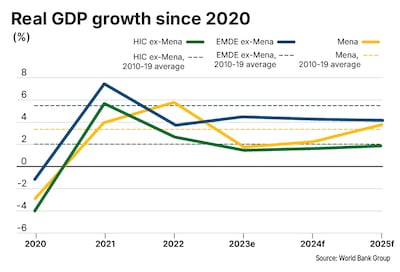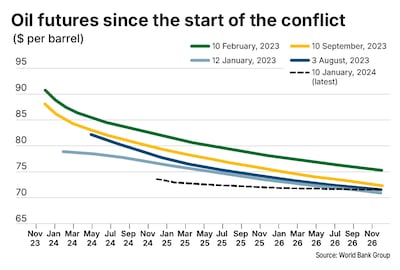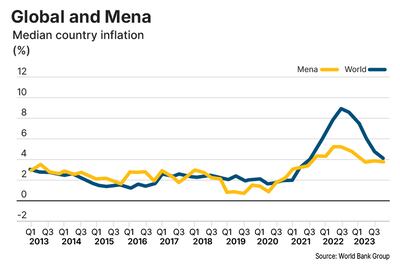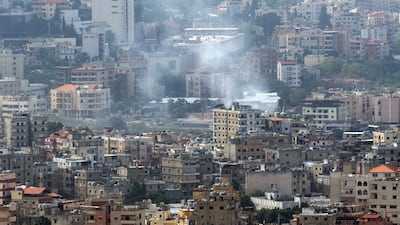The World Bank on Wednesday revised downward its outlook for the Middle East and North Africa's economic growth due to heightened uncertainties caused by the Gaza war, although the Gulf region is on track to expand amid diversification efforts.
The Mena region's gross domestic product is forecast to grow at 2.2 per cent this year, a “modest increase” from last year, but half a percentage lower from the World Bank's April projection of 2.7 per cent.
The increase is driven by the Gulf region, where growth is projected to rise to 1.9 per cent this year from 0.5 per cent in 2023, the lender said in its Mena Economic Update. In the rest of the region, “growth is expected to decelerate”, with oil importers' growth forecast to slow to 2.1 per cent this year from 3.2 per cent in 2023, and for non-GCC oil exporters, to 2.7 per cent from 3.2 per cent.
“The continuing conflict in the Middle East is causing profound suffering,” Ousmane Dione, World Bank vice president for the Middle East and North Africa, said in the report.
While the cost of conflict goes beyond what economic indicators can measure, they “lead to immediate economic losses and can have long-term detrimental effects on development”.

“These outcomes stem from human capital losses, forced displacement, the destruction of physical infrastructure, and various forms of economic disorganisation, including supply chain disruptions,” he said.
While the war has brought Gaza's economy to an almost complete standstill, neighbouring countries also continue to be affected. Jordan recorded a 6.6 per cent decrease in tourist arrivals through August, while there was a 62 per cent drop in Suez Canal revenue in Egypt in the first half of this year.
In Lebanon, escalating tensions are causing “human and economic tolls”, although the full extent of the impact “will be shaped by the future trajectory of the conflict”.
The Washington-based institution also said countries in the region affected by conflict could have seen their income-per-capita on average 45 per cent higher without it, measured seven years after its onset. The group said the loss is “equivalent to 35 years' worth of progress in the region”.
The downgrade also partly reflects the extension of Opec oil production cuts, the World Bank said.

Oil prices are expected to end the year slightly lower at $81 per barrel, compared to $83 per barrel last year. Prices climbed to $88 per barrel in April on escalating tensions in the region before retreating. Brent Crude was trading at $74.36 per barrel at 5.42 Pm UAE time on Wednesday, while West Texas Intermediate was trading at $70.60.
Meanwhile, inflation in the region is easing overall, reflecting a broader global trend in tamping down prices. Inflation is projected to decline to 2.2 per cent in the Mena this year after a decrease to 3.6 per cent last year.
However, the disinflation trend will not be felt evenly in the region. In GCC economies, whose currencies are pegged to the dollar, inflation is projected to slow to 1.7 per cent. Inflation is elevated among developing oil exporters at 4 per cent and oil importers at 5 per cent.

'Significant untapped potential'
The World Bank also noted key areas of opportunity for the region, including closing the gender gap.
At 19 per cent, the rate of female labour force participation in the region is the lowest in the world. Closing the gender gap would result in a 51 per cent increase in per capita income on average in the region, it said.
“Despite the region's current challenges, there is significant untapped potential” in the region, the institution said.
The World Bank also called for other reforms including transforming the role and size of the state, promoting innovation and better allocating talent in the labour market.
Mobilising talent towards the private sector would see aggregate productivity gains to increase by 45 per cent, it said.
“Transforming the role of the state would lead to substantial gains in productivity,” said Roberta Gatti, World Bank chief economist for the Middle East and North Africa.


